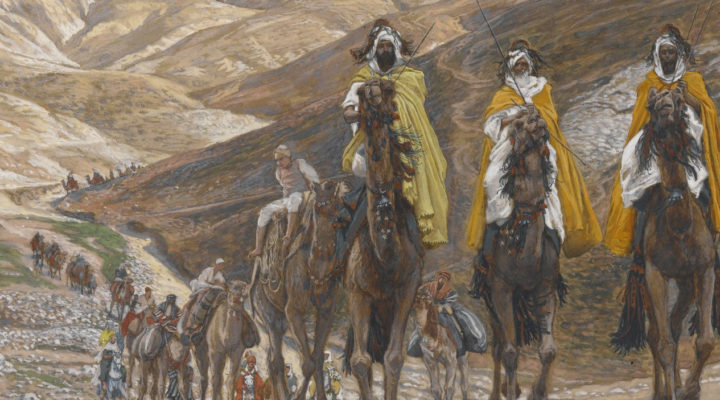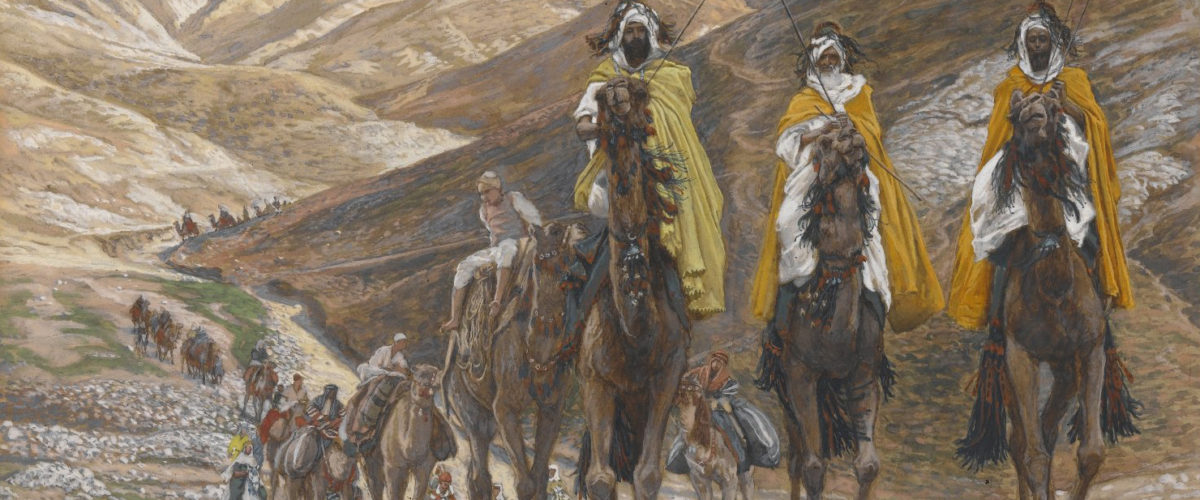As a youngster, Christmas season began the day after Thanksgiving (now known as “Black Friday, the busiest shopping day of the year) and ended on Dec. 26. That’s when holiday ornaments were put away, the tree was disposed (its shedded needles swept from the floor), and wrapping paper and bows bulged the trash can. Christmas dinner leftovers filled the fridge.
The fall Sears catalogue, which tallied a whopping 600-plus pages by the 1960s — including more than 200 pages of toys, more than a few which I had circled with a pen in my first go-round of preparing my Christmas wish list — was put away for a long winter’s nap.

Ken Sehested
Bing Crosby’s “12 Days of Christmas” never made sense to me. “I should be so lucky!” I thought to myself. And why those very strange gifts mentioned in the song? I didn’t think Mr. Sears stocked any of those.
I seem to remember being in an ecumenical seminary before learning about “Epiphany,” denoting the end of the season known as Christmastide.
There are three versions of what Epiphany (“manifestation”) is meant to commemorate in the church’s liturgical calendar.
One of those traditions is to celebrate Jesus’ baptism on Jan. 6.
Another tradition links Epiphany with the birth of Jesus. (The Jan. 7 date begins at sundown on Jan 6.)
Yet another tradition celebrates Epiphany as marking the arrival of the magi, of “We Three Kings” fame — the figures played in every Christmas play by children dressed in bathrobes. Yet the common element in each is the inauguration of a confrontation between God’s Only Begotten and those in seats of power.
As a baptismal occasion, this manifestation inspired Jesus’ first sermon in the temple at Nazareth. The gathered crowd was so perturbed at his message of deliverance that the text says they “were filled with wrath” and attempted to launch him headlong over a cliff.
As a birth announcement, this manifestation so infuriated the reigning regime that the “rules of military engagement” were expanded to include the execution of all male infants in the region around Bethlehem. And the First Family was forced to flee as refugees into Egypt, seeking political asylum from Herod’s rage.
As an announcement of international import, this manifestation threatened to implicate even visiting foreign dignitaries in the web of political intrigue, and they were smuggled out of town, on back roads, “by another way.”
In each reading of the narrative, the message is clear: The manifestation of God’s intent will disrupt the world as we know it. Those for whom this “world” is “home” — who profit from current arrangements, from orthodoxies of every sort — will take offense at this swaddling-wrapped revolt.
The bias of heaven is clear: The goodness of this news is evident only to “children,” to the defenseless ones, to the ones facing life on the road without provision, to the excluded and all judged unclean and unworthy.
“Biblically speaking, when you talk about heaven you’re liable to raise hell.”
Biblically speaking, when you talk about heaven you’re liable to raise hell. That is the evangelical announcement. Everything else is mostly sentimental drivel, designed to calm the powerful and control the weak.
But blessed are you poor, you mournful, you meek and merciful, you restorers of right-relatedness; blessed are you who are persecuted and accused in the cause of peace; for yours is the future, the riches of redemption, the solace of salvation, the bounty of the earth in all its goodness.
God will arise, says the prophet Isaiah, at the sound of suffering — of weeping from the envoys of peace, of mourning from the land itself. And so shall we.
As Wendell Berry is wont to say, “Be joyful, though you have considered all the facts.” Therefore, I say, rejoice. And thus we pray:
Gracious One, grant us the wherewithal to journey from Mary’s annunciation, to Epiphany’s acclamation, through Lent’s interrogation, all the way to Easter’s exultation.
May our Ordinary Days be marked by both sweat and praise. Find us faithful in the ordinary work of clearing, plowing, planting, that we might winnow the grains of justice and reap the harvest of peace.
Ken Sehested is the author and editor of prayerandpolitiks.org, an online journal at the intersection of spiritual formation and prophetic action.


